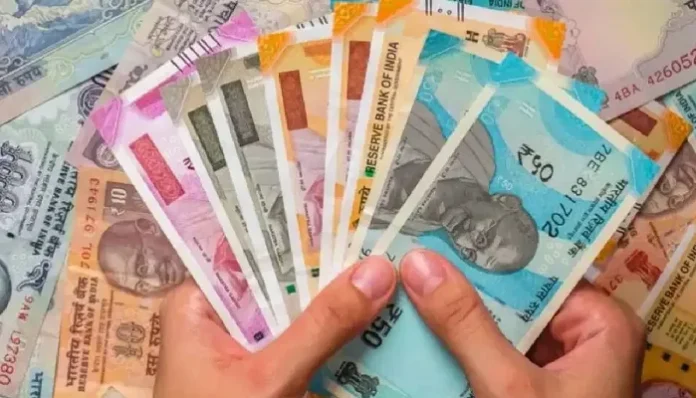SIP Tax Rules: Many people prefer Systematic Investment Plan (SIP) for saving and creating a large fund. But, it can be a bit complicated to understand how the profit earned from it is taxed.
Some people think that SIP is a long term investment, so it is not taxable. But the truth is that the profit earned from SIP is also taxable. The only difference is that the tax rate depends on which fund you have invested in and for how long you have held it.
Let us know how, when and how much tax is levied on the profit from mutual fund SIP. Also, how can tax on returns be reduced.
On what things does tax depend?
SIP return tax depends on two things. First, what type of fund you have – equity, debt or hybrid. And second, how long you have held the units – that is, what is the gap between the date of purchase and sale
These two things decide whether the profit will be considered as short term capital gain (STCG) or long term capital gain (LTCG) and how much tax will be levied.
How is SIP in equity funds taxed?
If you have done SIP in a mutual fund in which at least 65% of the money is invested in shares, then it is an equity fund. Vivek Jalan, partner at Tax Connect Advisory Services LLP, says that suppose you invest in an equity mutual fund (on which STT is applicable) through SIP for one year and then redeem the entire investment after 13 months.
According to Jalan, ‘In this situation, the units first purchased through SIP have been with you for more than 12 months, so Long Term Capital Gain (LTCG) will be applicable on them. If the long term profit from these units is less than ₹ 1.25 lakh, then there will be no tax on it. But if the profit is more than ₹ 1.25 lakh, then LTCG tax will be levied at the rate of 12.5% on the part above ₹ 1.25 lakh.’
However, the units purchased from the second, third and other installments of SIP will not be that old. The profit earned on them will be considered as short term capital gain (STCG) as the period of holding them will be less than 12 months. These will be taxed at the fixed tax rate of 20%, irrespective of your income tax slab. Appropriate cess and surcharge will also be levied on it. Tax rules are different for debt funds.
SIP Taxation for Equity Funds
| Holding Period | Tax Category | Tax Rate |
| 12 months or less | Short Term Capital Gain (STCG) |
20% (effective from 23 July 2024)
|
| More than 12 months | Long Term Capital Gain (LTCG) |
Tax free up to Rs 1.25 lakh, 12.5% above that
|
If you started SIP in June 2023 and booked a profit of ₹2 lakh in July 2025. Since you held the units for more than 12 months, it will be LTCG. The first ₹1.25 lakh will be tax-free, the remaining ₹75,000 will be taxed at 12.5%.
How are debt, gold or hybrid funds taxed?
Funds in which equity is less than 35% are debt-oriented or ‘non-equity’ funds. These too are taxed based on the holding period.
| Holding Period | Tax Category | Tax Rate |
| 36 months or less | Short Term Capital Gain (STCG) |
As per your income tax slab
|
| More than 36 months | Long Term Capital Gain (LTCG) |
12.5% (no longer eligible for indexation)
|
New rule: These funds used to get the benefit of indexation till April 2023, but now they don’t. But from FY2025–26, LTCG exemption up to ₹4 lakh has been given for non-equity funds.
Why is there a different tax on each installment in SIP?
Here it is important to understand that SIP is not a one-time investment but an investment process that is done every month. That is, every month’s installment is considered a new investment.
So when you sell units, tax is levied on a ‘FIFO’ (First-In-First-Out) basis. The oldest unit is considered first, and based on that, it is decided whether it is STCG or LTCG.
For example, if you started SIP in January 2024 and sold some units in June 2025, then the installment of January 2024 is now 17 months old, LTCG will be levied on it. On the other hand, if you sold the installment of May 2025, then it is only 1 month old, STCG will be levied on it.
SIP and Tax in ELSS Funds
ELSS or Equity Linked Saving Fund Scheme is a tax-saving fund, which has a lock-in period of 3 years on every SIP installment. The tax rules here are the same as equity funds:
- LTCG is applicable on sale after 3 years
- Tax free up to ₹1.25 lakh
- 12.5% tax on the rest
Additionally, ELSS also offers the benefit of tax deduction up to ₹ 1.5 lakh under Section 80C.
What about dividend income?
Before 2020, dividend distribution tax (DDT) was levied on mutual funds, which has now been abolished. Now whatever dividend you get, it is added to your total income and is taxable as per your tax slab.
Ways to save tax on SIP returns
- Remember the FIFO rule – the unit purchased first is considered first, plan accordingly.
- Avoid selling equity funds before 12 months, else you will have to pay 20% STCG.
- You can use LTCG exemption of Rs 1.25 lakh every year to save tax.
- It would be better to plan keeping in mind the ₹4 lakh LTCG exemption in debt funds.















